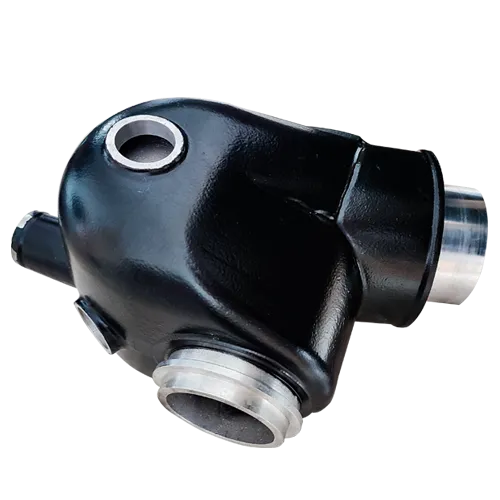Mobile:+86-311-808-126-83
Email:info@ydcastings.com
Design and Optimization of Enclosed Impeller Systems for Enhanced Fluid Dynamics Performance
Enclosed Impeller A Comprehensive Overview
In the realm of fluid dynamics and pump design, the enclosed impeller plays a pivotal role in achieving efficient fluid movement. This specialized component is primarily utilized in centrifugal pumps, particularly those designed for handling various types of liquids in industrial, agricultural, and municipal applications. An enclosed impeller is characterized by its unique design, which includes a set of blades encased within a disk or housing, allowing for increased efficiency and performance in the transportation of fluids.
Design Features
The enclosed impeller typically consists of curved blades that are mounted on a hub. These blades are enclosed on both the top and bottom surfaces, distinguishing them from open impellers, which have blades that are exposed. The enclosed design enhances the management of fluid dynamics by maintaining a consistent flow pattern and minimizing turbulence. This results in improved hydraulic efficiency and reduces the risk of cavitation—a phenomenon that can cause significant damage to pump components.
Moreover, the enclosed impeller’s design adapts well to varying flow conditions, making it suitable for a wide range of applications, from water treatment and chemical processing to the transfer of slurries and viscous fluids. As the fluid enters the impeller, it is accelerated by the rotating blades, creating a centrifugal force that propels the liquid outward toward the volute, which converts the kinetic energy into pressure energy, thus facilitating efficient fluid transport.
Advantages
One of the primary advantages of enclosed impellers is their ability to handle higher pressures compared to their open counterparts
. This makes them particularly effective for applications requiring significant lifting capabilities. Furthermore, the enclosed design helps protect the blades from wear and tear caused by abrasive materials in the fluid, extending the overall lifespan of the pump.enclosed impeller

Another notable advantage is the enhanced efficiency of enclosed impellers. By reducing the recirculation of fluid and optimizing the flow path, these impellers can minimize energy consumption, resulting in lower operational costs. The improvements in hydraulic performance not only translate to energy savings but also contribute to a reduction in the environmental impact of pumping operations.
Applications
Enclosed impellers find applications in a variety of industries. In the municipal sector, they are commonly used in water supply and sewage treatment plants to move water efficiently. In agricultural settings, enclosed impellers are essential for irrigation systems and the transfer of fertilizers and other chemicals. Additionally, in the chemical industry, these impellers can be found in processes where mixing and pumping of various substances are required.
The adaptability of the enclosed impeller also allows for customizations based on specific application needs. For instance, adjustments can be made to blade geometry, material selection, and impeller size to cater to specific fluid characteristics and operational requirements.
Conclusion
The enclosed impeller is an invaluable component in the design and operation of centrifugal pumps. Its characteristics contribute significantly to the efficiency, durability, and effectiveness of fluid transport systems across various industries. As technology advances and the demand for efficient fluid management solutions continues to grow, the significance of enclosed impellers will undoubtedly increase. Understanding their design, advantages, and applications is essential for engineers and operators aiming to optimize performance and sustainability in their pumping systems. Whether dealing with clean water or challenging slurries, the enclosed impeller proves its worth as a reliable solution for modern fluid-handling needs.
-
Why Should You Invest in Superior Pump Castings for Your Equipment?NewsJun.09,2025
-
Unlock Performance Potential with Stainless Impellers and Aluminum End CapsNewsJun.09,2025
-
Revolutionize Your Machinery with Superior Cast Iron and Aluminum ComponentsNewsJun.09,2025
-
Revolutionize Fluid Dynamics with Premium Pump ComponentsNewsJun.09,2025
-
Optimizing Industrial Systems with Essential Valve ComponentsNewsJun.09,2025
-
Elevate Grid Efficiency with High-Precision Power CastingsNewsJun.09,2025











